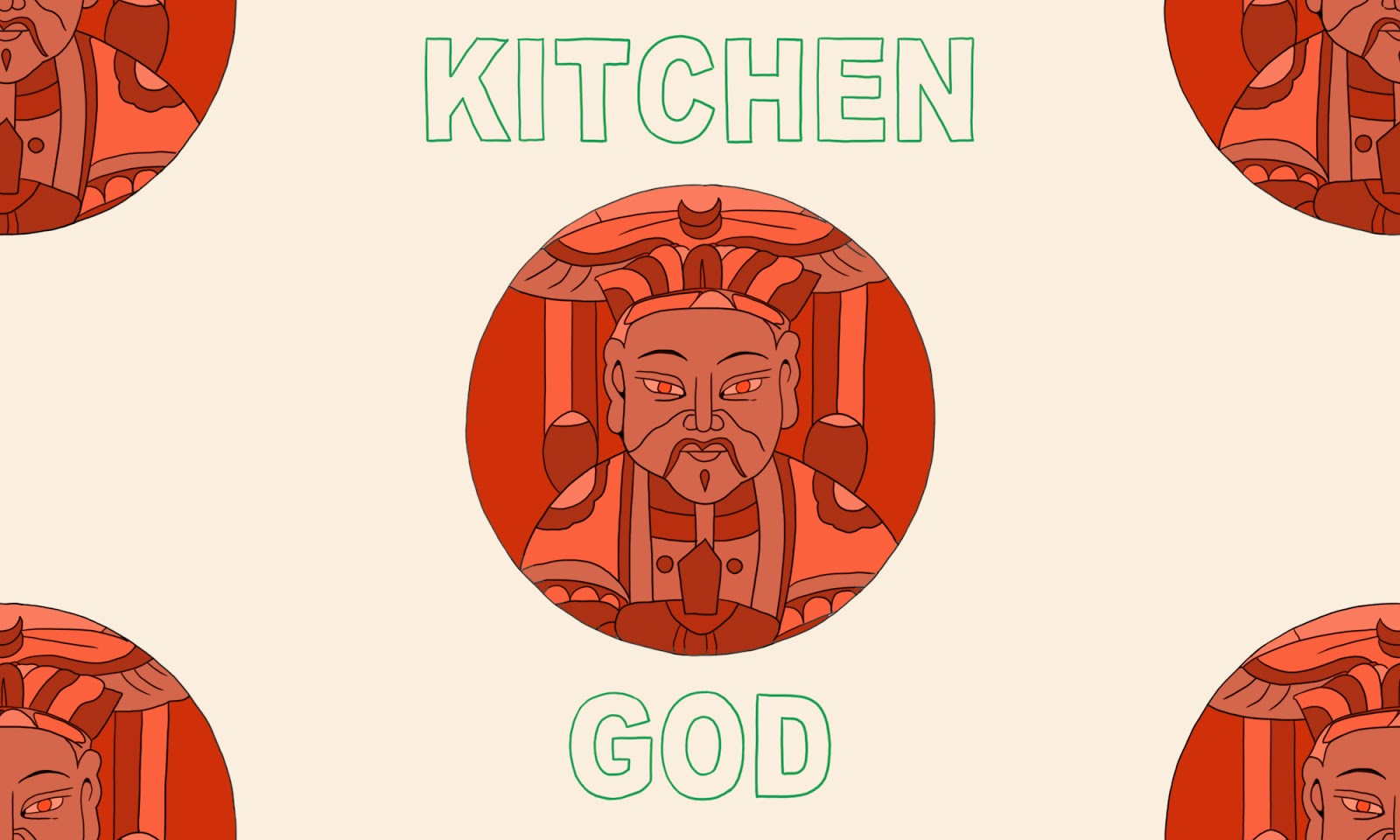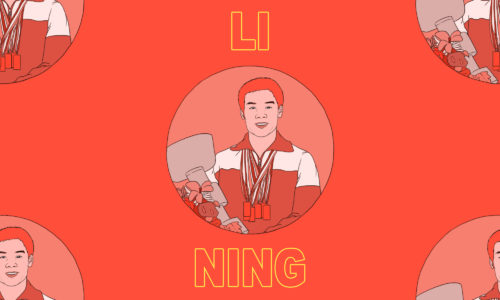With all the frustrations of a year like 2020, it’s a reassurance for households across America that whatever happens in their home, stays in the home. But for the ancient Chinese there would have been no escape, as all antics happened under the watchful eye of the Kitchen God, Zào Jūn 灶君.
He’s the god of the hearth in Daoism and Chinese folk culture, smiling benevolently down from his place above the kitchen stove. He acted as divine mascot and informer, accumulating good fortune for the household by returning to the Jade Emperor a week before Spring Festival with a report on their good deeds, the emperor rewarding them with good fortune in the year to come. But if bad deeds outweighed good, the family would be plagued with a year of bad luck.
It’s tempting to imagine him as a suffocating mix of Santa Claus and security camera, tallying your every action, pen ever-poised to scribble down even the smallest misdeed. But over the centuries the Chinese found a cunning way to disarm the Kitchen God, turning him into a valuable mediating asset — through bribery.
Who is the Kitchen God?
There are all sorts of legends as to his origins. He could have been a good man forced by poverty to sell his wife, inadvertently ending up working in the house of her new husband. He could have been a cheating merchant called Zhang Lang who abandoned his loyal spouse for a younger woman, cursed by Heaven with blindness and poverty. Either way, the wife takes pity, but he hurls himself into the fire of the stove in despair or embarrassment. In sympathy the gods made him the Kitchen (or Stove) God, reuniting the couple in the afterlife.
In only the most traditional of houses will you see him today. His likeness was stamped on paper, with his wife usually alongside him. According to tradition she jots down all the actions of the family, with good and bad sorted into two different pots on his left and right side, in preparation for her husband’s end-of-year report.
The earliest known tales of the Kitchen God date as far back as the Zhou Dynasty. At that time he may have been a manifestation of Huǒshén 火神, the fire God, or Xiānchuī 先炊, a god of “primordial steam.” His origins were based in warmth, light, heat, and food — such a god could only be a kind one. With the invention of the brick stove, the Kitchen God moved into the new housing, becoming one of the key gods to sacrifice to in the centuries leading up to the Qin Dynasty. Confucius is asked in the Analects whether the common assumption that sacrificing to the Kitchen God over the family’s shrine god is more important. By the time of the Han Dynasty, he had human form, and no longer lived within the stove itself.
Indeed, the stove was the soul of the family in traditional China. A large family with numerous branches would all share the same one. If one branch decided to leave, they had to take coals from the old stove with them, allowing the Kitchen God to move too — a new family without its own god of the hearth would have no heavenly advocate to receive the emperor’s bounty.
But during the Han and the Jin (up to the 5th century AD), the Kitchen God seems to have taken on a more ominous role, making lists of a family’s every action. It was a very bureaucratic relationship. As the lowest in the heavenly host, the Kitchen God was tasked with the tedious job of house monitor, watching the lowest unit of society (the family) go about their daily life. According to Jin Dynasty writer Gé Hóng 葛洪, when the Kitchen God made his report to the Jade Emperor, the latter could punish serious offenses by taking 300 days off someone’s life. Minor misdemeanors only got three days knocked off — but imagine how that could add up over the course of a year.
With such power over their fortunes, traditions developed to pacify the Kitchen God. When it was believed he lived in the stove, respect was always to be shown to this domestic object: no axe or knife was to be laid on it, voices weren’t to be raised around it, and it was never to be hit or kicked.
Eating sweets and sticky treats at Little New Year — also known as the Festival of the Kitchen God, usually observed about a week before the lunar new year — is the modern remnant. The Kitchen God is due to return to Heaven with his report on the 23rd day of the 12th lunar month, so he’s given a big send-off. Offerings of incense, fruit, and sticky sweets is typical, his mouth wiped with honey to ensure the only words that he spoke to the Jade Emperor were sweet (or else its stickiness glued his mouth shut). Some would try and get him drunk, smearing his mouth with wine dregs to ensure he bungled his report.
Instead of casting out Heaven’s informant, the Chinese turned it into a win-win. “You should not hear about the struggle between the maids,” Song poet Fàn Chéngdà 范成大 implores the Kitchen God. “Don’t be angry when cats and dogs touch filth / …don’t repeat [to] the clouds. / Return to the market and receive a share of the profits.” In other words, give us a good report and we’ll have good fortune. If we have good fortune, we can give you more offerings.
His paper effigy would be set in a papier-mâché chariot and set alight, speeding him up to Heaven. Upon his return, a new effigy would be affixed in the kitchen, the god ready to watch over the family for another year.
Unsurprisingly, he had a hard time in China’s 20th century, first with Chiang Kai-Shek’s (蒋介石 Jiǎng Jièshí) “New Life Movement,” then with the anti-religion campaigns under Mao. As with countless other household shrines, his effigy was consigned to the bonfire (this time without a resurrection). Although he’s well known in modern China, he’s only really found in the kitchens of Daoist monasteries (whereas others like Caishen have returned to their old haunts). But he still has a following in other parts of Southeast Asia — extra honey may be needed this year.
Chinese Lives is a weekly series.






